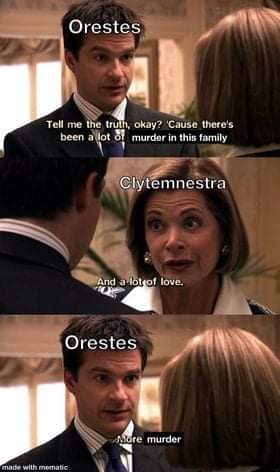Lewis & Clark Moodle
Search results: 2164
in global consumer cultures, the gendering and
objectification of bodies, and the
commodification of bodies in looksist societies.
Raising awareness of body politics in the
counseling process is reviewed to promote
individual and relational wellbeing.
- Teacher: Center for Community Engagement
- Teacher: Justin Henderson
- Teacher: Center for Community Engagement
- Teacher: Dianne Lamberty Rogers
children. Family therapy treatment strategies
including the Maudsley method and other
approaches. How to foster healthful eating in
families.
- Teacher: Dianne Lamberty Rogers
children. Family therapy treatment strategies
including the Maudsley method and other
approaches. How to foster healthful eating in
families.
- Teacher: Dianne Lamberty Rogers
DISABILITY STUDIES AND UNIVERSAL DESIGN:
Every educator will encounter students who meet the criteria for disability within public education and grapple with how to successfully foster learning, equity and inclusion in diverse classrooms and schools. This online course, introduces Disability Studies in Education-- a liberation movement discipline distinct from Special Education-- that offers unique insight into these endeavors and proposes Universal Design as a guiding principle.
Disability Studies proposes that "disability" is contextualized within particular social, cultural and political environments according to the acceptable limits of human variability in those environments. This contrasts with the "medical, model," which positions disability as a deficit inherent to an individual, to be rehabilitated, remediated or cured. Contrasting these two different theoretical models helps us to explore the ideology that may underlie ableism, stigma and privilege. Our inquiry will include lived experience and counter culture narratives associated with various disability groups. We will conclude by investigating how we may employ the principle of Universal Design to create embracive learning environments where all students feel valued and empowered, as well as how we may work to dismantle systemic barriers to equity and inclusion within Education.
Disability Studies intersects with other critical disciplines such as Critical Race Studies, Feminist Studies and Gender Studies, all of which foreground lived experience and de-center dominant narratives that cast particular individuals or groups as the "Other." These intersections are also considered in the course, shedding light on the persistent over-representation of minorities in Special Education and exploring whether disablement may function as a mechanism of marginalization for various groups.
Through assigned readings and communal online discussion among professional peers, we will investigate the philosophical, pedagogical, and pragmatic approaches to dis/ability, equity, and, inclusion in education. Teachers, counselors, administrators, psychologists, specialists and academics should all emerge from this course with the historical context, intellectual framework, and practical skills to deepen their professional practice and help promote social justice-both within the sphere of education and in the wider world.
- Teacher: Denise Herrenbruck
- Teacher: Jennifer Kempf-Burkart
In-depth study of a special topic offered by the, Graduate School of Education and Counseling for the first time or on a, temporary basis.
- Teacher: Sue Feldman
- Teacher: Frances Lessman
- Teacher: Sidney Morgan

- Teacher: Barbara Balko
- Teacher: Paul Cleary
- Teacher: Jessica Daniel
- Teacher: Rosie Dodean
- Teacher: Alex Duquette
- Teacher: Mason Handford
- Teacher: Louis Kuo
- Teacher: Ian Schacherer
- Teacher: Jessica Daniel
- Teacher: Louis Kuo
and adjacent to the carbonyl group, enolization,
conjugate addition, oxidation, reduction).
Lecture, conference, laboratory. Synthesis,
chemistry of carboxylic acids and derivatives (pKa
of acids, nucleophilic substitution of
derivatives, acyl chlorides, esters, amides,
anhydrides, nitriles). Carbohydrates
(stereochemistry, aldoketoses, aldopentoses,
aldohexoses, ketosugars, derivatives, furanose and
pyranose forms, reducing and nonreducing sugars,
disaccharides and polysaccharides); fats and oils;
aromatic hydrocarbons (benzene, resonance and
molecular orbital approaches, electrophilic and
nucleophilic aromatic substitution); aromatic
nitrogen and oxygen chemistry (diazotization,
synthesis); chemistry of amines, amino acids,
peptides, proteins, DNA; other topics. Lecture,
discussion, laboratory.
- Teacher: Calista Aragon
- Teacher: Jessica Daniel
- Teacher: Louis Kuo
- Teacher: Alister Ng
- Teacher: Hunter Powell
- Teacher: Barbara Balko
- Teacher: Anne Bentley
chemistry with emphasis on bonding, structure,
thermodynamics, kinetics and mechanisms, and
periodic and family relationships. Atomic
structure, theories of bonding, symmetry,
molecular shapes (point groups), crystal
geometries, acid-base theories, survey of familiar
elements, boron hydrides, solid-state materials,
nomenclature, crystal field theory, molecular
orbital theory, isomerism, geometries, magnetic
and optical phenomena, spectra, synthetic methods,
organometallic compounds, cage structures,
clusters, lanthanides, actinides.
- Teacher: Anne Bentley
- Teacher: Robert Kugler
from Classical antiquity: Homer's Iliad and
Odyssey, Apollonius's Argonautica,
Virgil's Aeneid, Lucan's Civil War,
and Statius's Thebaid. Focus on the
traditional themes of the epic genre, including
the nature of heroism, the relationship between
mortals and gods, issues of peace and war, and the
conflict of individual and communal goals; how
ancient authors adapted epic conventions to suit
their own artistic goals; how these epics
reflected the values and history of contemporary
Greco-Roman civilization; and their influence in
antiquity and beyond.
- Teacher: Gordon Kelly
- Teacher: Gordon Kelly
- Teacher: Gordon Kelly
from the Early Republic into late antiquity:
education, religion, marriage, divorce, family
life, reproductive issues, and social status with
an emphasis on actual ancient sources such as
funeral epitaphs, medical texts, inscriptions,
archaeological evidence, letters, historical
writings, and poetry.
- Teacher: Gordon Kelly
Welcome to our January 2025 Clinical Supervision for Professional
Counselors 4-day, 30 hour training! All the materials for our four-day
training will be available for your review, so please feel free to read
ahead if you'd like. Our training will be distance-based, and consist of both live Zoom and
"off-line" Moodle assignments, each of which we'll review and clarify
along the way.
This training is designed to be both educational and interactive, with a high level of trainee participation encouraged! Feedback from recent Zoom trainings have helped shape this course into a (hopefully) well-paced and user-friendly experience, while still capturing all of the essential elements of the full clinical supervision training.
I look forward to meeting each of you during our first morning of introductions. After a brief survey of your accumulated supervisory experiences, we will move into our training activities. Thank you in advance for your engagement and participation. "See" you on Thursday, January 23, 2025 at 8:30 am!
James Gurule, MA, LPC
Adjunct Faculty
- Teacher: Center for Community Engagement
- Teacher: James Gurule
Welcome to our January 2025 Clinical Supervision for Professional
Counselors 4-day, 30 hour training! All the materials for our four-day
training will be available for your review, so please feel free to read
ahead if you'd like. Our training will be distance-based, and consist of both live Zoom and
"off-line" Moodle assignments, each of which we'll review and clarify
along the way.
This training is designed to be both educational and interactive, with a high level of trainee participation encouraged! Feedback from recent Zoom trainings have helped shape this course into a (hopefully) well-paced and user-friendly experience, while still capturing all of the essential elements of the full clinical supervision training.
I look forward to meeting each of you during our first morning of introductions. After a brief survey of your accumulated supervisory experiences, we will move into our training activities. Thank you in advance for your engagement and participation. "See" you on Thursday, January 23, 2025 at 8:30 am!
James Gurule, MA, LPC
Adjunct Faculty
- Teacher: Center for Community Engagement
- Teacher: James Gurule
Welcome to our August 2025 Clinical Supervision for Professional Counselors 4-day, 30 hour training! All the materials for our four-day training will be available for your review, so please feel free to read ahead if you'd like. Our training will be distance-based, and consist of both live Zoom and "off-line" Moodle assignments, each of which we'll review and clarify along the way.
This training is designed to be both educational and interactive, with a high level of trainee participation encouraged! Feedback from recent Zoom trainings have helped shape this course into a (hopefully) well-paced and user-friendly experience, while still capturing all of the essential elements of the full clinical supervision training.
I look forward to meeting each of you during our first morning of introductions. After a brief survey of your accumulated supervisory experiences, we will move into our training activities. Thank you in advance for your engagement and participation. "See" you on Thursday, July 10, 2025 at 8:30 am!
James Gurule, MA, LPC
Adjunct Faculty
- Teacher: Center for Community Engagement
- Teacher: James Gurule
Welcome to our August 2025 Clinical Supervision for Professional Counselors 4-day, 30 hour training! All the materials for our four-day training will be available for your review, so please feel free to read ahead if you'd like. Our training will be distance-based, and consist of both live Zoom and "off-line" Moodle assignments, each of which we'll review and clarify along the way.
This training is designed to be both educational and interactive, with a high level of trainee participation encouraged! Feedback from recent Zoom trainings have helped shape this course into a (hopefully) well-paced and user-friendly experience, while still capturing all of the essential elements of the full clinical supervision training.
I look forward to meeting each of you during our first morning of introductions. After a brief survey of your accumulated supervisory experiences, we will move into our training activities. Thank you in advance for your engagement and participation. "See" you on Thursday, July 10, 2025 at 8:30 am!
James Gurule, MA, LPC
Adjunct Faculty
- Teacher: Center for Community Engagement
- Teacher: James Gurule
Welcome to our May 2024 Clinical Supervision for Professional
Counselors 30 hour training! All the materials for our four-day
training will be available for your review, so please feel free to read
ahead if you'd like. Our training will be distance-based, and consist of both live Zoom and
"off-line" Moodle assignments, each of which we'll review and clarify
along the way.
This training is designed to be both educational and interactive, with a high level of trainee participation encouraged! Feedback from recent Zoom trainings have helped shape this course into a (hopefully) well-paced and user-friendly experience, while still capturing all of the essential elements of the full clinical supervision training.
I look forward to meeting each of you during our first morning of introductions. After a brief survey of your accumulated supervisory experiences, we will move into our training activities. Thank you in advance for your engagement and participation. "See" you on Thursday, May 16, 2024 at 8:30 am!
James Gurule, MA, LPC
Adjunct Faculty
- Teacher: Center for Community Engagement
- Teacher: James Gurule
- Teacher: Lydia Loren
This section will focus on one of the key features of being a literate and active member of a democracy: the ability to locate, think about, and make arguments with data. While we will indeed use numbers to explore the scientific and social ramifications of alcohol and substance use, this will not be a “math” class in the conventional sense. Nor, it must be said, will this be a “humanities” class in the conventional sense. We will likely spend less time dissecting texts than other E&D sections, or at least not in the same way. Instead, we will think about how quantitative reasoning can shape and strengthen arguments about academic research, public policy, literature, and the choices we make in our daily lives.
- Teacher: Todd Watson
COURSE OVERVIEW, THIS SECTION:
What is the self? How do we come to know the self? What is consciousness and where does it reside? These questions have fascinated philosophers and scientists for centuries. In the age of virtual reality and artificial intelligence, they have become more relevant than ever. Legal scholars, neuroscientists, and ethicists are embroiled in inquiry about the rights and responsibilities of artificial intelligence and downloaded consciousness (also known as “whole brain emulations”). But how do experts determine the answers to these questions, and what assumptions are best left behind? This course will draw on scientific journals, the popular press, and internet sources to examine identity in the virtual age. In the course of our quest, we will expand our ability to locate, think about, and make arguments with data.
While the heart of this E&D section is in Psychological Science, we will use a broad and interdisciplinary approach. We will use numbers and data visualization to explore virtual identities and bring these resources in conversation with long standing philosophical case studies such as Plato’s Allegory of the Cave. We will also draw on scholarship grounded in the social sciences regarding inequalities in our digital lives, particularly as they impact racial and sexual minorities. Alongside these content questions, we will evaluate the role quantitative reasoning can play in shaping the future of human-tech interaction.
- Teacher: Diana Leonard
- Teacher: Todd Watson
Course Description: 120-03
THE ROMANTIC GENERATION
The words “Romantic” and “Romanticism” hold a myriad of meanings for most of us. We watch “Rom-Com” films, see ads that sell “Romantic” products and experiences, and listen to Romantic music. In this course we will investigate the origins of Romanticism, the philosophical ideas and ideals that galvanized a generation of writers, artists and musicians, read, hear, and study the music and literature of the 19th- century Romantic artists, and spend some time reading critiques of their work by their contemporaries and more current writers. We will investigate the role of the artist (music, literature and art) in 19th-century society, the and search for parallels between the 19th century and our own time. Finally, we will look at how the ethos of the 19th century has shaped our own experiences as creators and consumers of art. Are we, ourselves, a generation of 21st-century Romanticists?
- Teacher: Susan Smith
- Teacher: Michael Mirabile
- Teacher: Gordon Kelly

- Teacher: Todd Lochner
significance of texts via close reading and
analysis, and to express that analysis orally and
in writing. Specific content and topics will vary
with instructors.
"People, Paleography & the Past: Analyzing the Slavery Archive"
The sources we use to study the history of slavery in North America exist in multiple forms and archives. Written and unwritten narratives, diaries, newspapers, legal codes, trial transcripts, ledgers, material culture, visual art, music–all found in archives, libraries, museums, family papers, and memories. How do we discover and recover these materials? How do we analyze them to understand their origins, their purpose, and their significance? How do we interpret them to answer questions about the institution of slavery, the experience of slavery, and the end of slavery? Do the voices of the enslaved speak in these records? How do we use the slavery archive to work through the silences and fathom the realities of their lives? What are the stakes of this kind of research?
In this course, we will address these questions by exploring major themes in the history of slavery and annotating the world’s largest document collection on this topic, Slavery & Anti-Slavery: A Transnational Archive (SAAS). This database contains over five million pages of archival material from the seventeenth to the nineteenth centuries written in multiple languages, including Spanish, English, and French. With a combination of collaborative research, discussion, and writing, students will develop skills in paleography (deciphering handwritten historical manuscripts) and historical analysis to examine the archive’s role in the study of enslaved peoples and the people who enslaved them.
- Teacher: Nancy Gallman

In this section of Words, we will critically examine the subject of religion in Japan. Japan is variously described as either the most secular or the most spiritual country on earth. Such observations should prompt us to critically reflect on what we mean by words like “religious,” “spiritual” or “secular.”
In this course, we will survey diverse examples of religion in Japan, including a prehistoric shaman-queen, a shape-shifting dragon-girl from an Indian sutra, a hidden Christian community, an apocalyptic healing cult, an ascetic monk, a Buddhist mortician, a tour-bus pilgrimage, and an anime film. As we examine the intersection of Japanese religion with gender, statecraft, capitalism, and national identity, we will draw sources and analytical insights from the fields of history, sociology, anthropology and religious studies.
- Teacher: Jessica Starling

- Teacher: Todd Lochner
- Teacher: Reiko Hillyer

- Teacher: Todd Lochner

- Teacher: Bruce Podobnik

This course asks the central question: how might we understand the complicated relationship between our understanding of the “ideal” city, our experiences in cities, and the numbers and images we use to describe the City? We will explore the ways in which statistics, maps, and images may corroborate or belie what we understand to be true of lived experience within urban spaces. Our course considers the city a living and dynamic organism, both a human construct and ever-present agent subtly shaping social performance. The curriculum will highlight diverse academic disciplines, ranging from art history to sociology, philosophy to urban planning. Participating students should be interested in working creatively with fellow classmates and making occasional off-campus site visits. Prior experience with statistics and mapping is not required or expected.
- Teacher: Read McFaddin

This course asks the central question: how might we understand the complicated relationship between our understanding of the “ideal” city, our experiences in cities, and the numbers and images we use to describe the City? We will explore the ways in which statistics, maps, and images may corroborate or belie what we understand to be true of lived experience within urban spaces. Our course considers the city a living and dynamic organism, both a human construct and ever-present agent subtly shaping social performance. The curriculum will highlight diverse academic disciplines, ranging from art history to sociology, philosophy to urban planning. Participating students should be interested in working creatively with fellow classmates and making occasional off-campus site visits. Prior experience with statistics and mapping is not required or expected.
- Teacher: Read McFaddin
- Designer: Justin Counts
- Designer: Carol Doyle
- Designer: Morgan Grether
- Designer: Amy Rees
- Teacher: Justin Henderson
- Teacher: Justin Henderson
Considers the relationship between body and power, in global consumer cultures, the gendering and, objectification of bodies, and the, commodification of bodies in looksist societies., Raising awareness of body politics in the, counseling process is reviewed to promote, individual and relational wellbeing.
- Teacher: Justin Henderson
Considers the relationship between body and power, in global consumer cultures, the gendering and, objectification of bodies, and the, commodification of bodies in looksist societies., Raising awareness of body politics in the, counseling process is reviewed to promote, individual and relational wellbeing.
- Teacher: Justin Henderson
- Teacher: Center for Community Engagement
- Teacher: Dianne Lamberty Rogers
Disordered eating and eating disorders in children. Family therapy treatment strategies, including the Maudsley method and other, approaches. How to foster healthful eating in, families.
- Teacher: Center for Community Engagement
- Teacher: Dianne Lamberty Rogers
children. Family therapy treatment strategies
including the Maudsley method and other
approaches. How to foster healthful eating in
families.
- Teacher: Dianne Lamberty Rogers
children. Family therapy treatment strategies
including the Maudsley method and other
approaches. How to foster healthful eating in
families.
- Teacher: Dianne Lamberty Rogers
Disordered eating and eating disorders in children and adolescents Family therapy treatment strategies, including the Maudsley method and other approaches. How to foster healthful eating in families.
- Teacher: Dianne Lamberty Rogers
- Teacher: Thomas Doherty
- Teacher: Christopher Russo
- Teacher: Carol Doyle
- Teacher: Christopher Russo
- Teacher: Jeffrey Christensen
- Teacher: Antonia Mueller
- Teacher: Antonia Mueller
- Teacher: Antonia Mueller
- Teacher: Antonia Mueller
- Teacher: Justin Henderson
- Teacher: Antonia Mueller
- Teacher: Antonia Mueller
- Teacher: Antonia Mueller
- Teacher: Julianna Vermeys
- Teacher: Antonia Mueller
- Teacher: Antonia Mueller
- Teacher: Antonia Mueller
- Teacher: Antonia Mueller
- Teacher: Julianna Vermeys
- Teacher: Suzanne Sanchez
- Teacher: Kirk Shepard
- Teacher: Katelyn Bessette
- Teacher: Kirk Shepard
- Teacher: Angela Gilchrist-Stewart
- Teacher: Tod Sloan
- Teacher: Meg Jeske
- Teacher: Alexia Deleon
- Teacher: Alexia Deleon
- Teacher: Mary Beckman
- Teacher: Stella Kerl-Mcclain
- Teacher: Stella Kerl-Mcclain
- Teacher: Justin Henderson
- Teacher: Stella Kerl-Mcclain
- Teacher: Stella Kerl-Mcclain
- Teacher: Stella Kerl-Mcclain
- Teacher: Mark Douglass
- Teacher: Stella Kerl-Mcclain
- Teacher: Richard Rosenberg
- Teacher: Suzanne Sanchez
- Teacher: Richard Rosenberg
This course is about how to help people change what they experience and how they live their lives. We will examine core strategies, interventions, and counselor skills for the common issues clients bring to counselors and therapists. Learn from your own experience with a personal change experiment; practice helping a classmate; practice planning to help clients via cases examples; learn to research strategies useful with clients and problems of special interest to you; watch master therapists demonstrate their approaches to key elements of effective work with clients; learn how to help clients engage their best values and goals; learn to individualize your approach within a wholistic framework of social, cultural and spiritual relevance to your clients.
mental health and the natural environment and
explores ways in which psychological knowledge and
practices can contribute to the solution of
environmental problems. This course provides an
introduction to ecopsychology theory, findings and practices, and a survey of related research findings in environmental and conservation
psychology. Topics include health benefits
of natural settings, the development of
environmental identities, and promotion of
conservation behaviors. Students will be guided
toward self-reflection regarding their own
environmental identity, their motivations for
integrating environmental approaches into
their professional work, and ways to integrate ecopsychology
into their existing theory and practice base.
- Teacher: Thomas Doherty
- Teacher: Ryan Francis
- Teacher: Jessica Thomas
- Teacher: Eleanor Battison
- Teacher: Carol Doyle